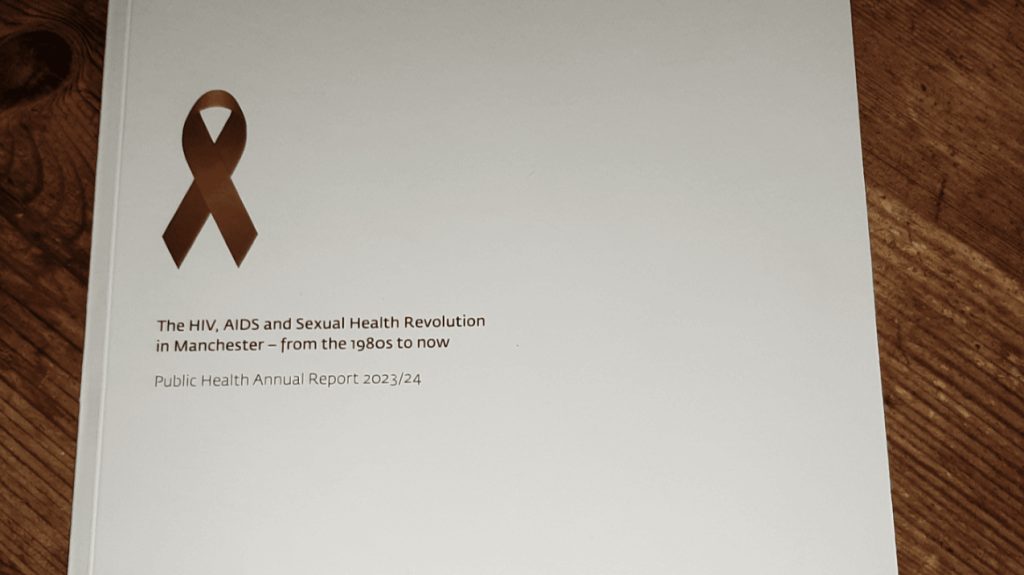
World AIDS day sees the launch of a very personal series of testimonies and memories dating back to the 1980s through to today, that show Manchester’s response to HIV and AIDS.
The memories are contained within a special annual report, which is also a legacy from Manchester’s recently retired Director of Public Health, David Regan – as it charts early days of fear and stigma, through to the Manchester of today, and a city that celebrates diversity.
Split into two sections, the first part contains the personal stories of those affected by HIV and AIDS, featuring first-hand experience and the raw loss of loved ones in a climate of fear and uncertainty. The second section moves on to the city’s embracing of science, technology, and new ways of partnership working for the wider promotion and provision of pre-exposure prophylaxis (PrEP), a drug that stops HIV transmission.
That progress towards zero transmission means that of all the people living with HIV in Manchester, 89% are virally suppressed and cannot pass on HIV. And, since 2014 Manchester has seen a 53.7% reduction in new diagnoses.
Case studies throughout the second section show bespoke solutions for Manchester’s diverse communities, as well as understanding the complexity of support that can be provided.
The document even contains a preface from actor Jack Holden, who wrote the play Cruise about the AIDS epidemic of the 1980s and was performed across the country and in Manchester.
In his preface he says:
“I never saw the darkest days of the AIDS crisis, though I grew up in its long shadow, which instilled in my parents a fear that being gay was a death sentence. With Section 28 in place until I was 13 years old, I assembled a patchy understanding of AIDS through terrifying rumours and biology textbooks. When I was 18, a member of the Terence Higgins Trust came to give a talk at my drama school, and I finally got the information I needed.”
Manchester’s report ends with a section called ‘What now for Manchester’, where David Regan sets out further suggestions around education and awareness, such as continuing the George House Positive Speakers programme in schools; addressing rates of sexually transmitted infections (STIs) through exploring options like the feasibility of a Dean Street-type service in the city centre (where all types of free NHS sexual health services are offered) ; and improving access to contraception.
Councillor Bev Craig, Leader of Manchester City Council, said:
“This report sums up the spirit and activism in Manchester that mean we will always work together to aim for zero new HIV transmissions by 2030 – which is the best way we can honour the personal stories so movingly told within its pages.”
Councillor Thomas Robinson, Executive Member for Healthy Manchester and Adult Social Care, at Manchester City Council, said:
“The bravery of this report and its contributors demonstrate the determination that saw moves five years ago in Manchester like providing free infant formula to mothers living with HIV – and we will continue to build on that history , commitment and innovation.”
The HIV, AIDS and Sexual Health Revolution in Manchester – from the 1980s to now (Public Health Annual Report 2023/24, can be read here: https://www.manchester.gov.uk/downloads/download/6928/public_health_annual_report
For information on HIV testing in Manchester, please go to: https://gmpash.org.uk/hiv/hiv-testing


